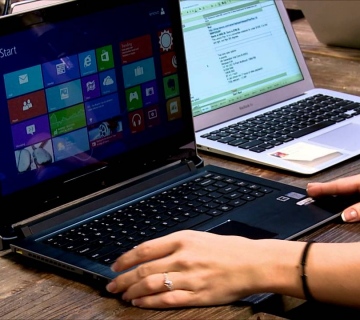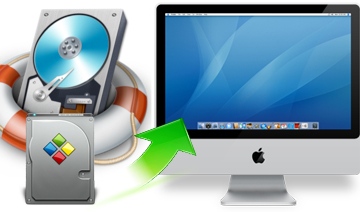Just like the cassette tape, VHS and 8-track before them, CDs and DVDs are becoming less and less relevant in today’s society — and soon will become archaic. CDs and DVDs served a purpose for years, but were never a perfect media for entertainment. Your favorite track or movie could all-too-frequently develop scratches, causing your CD to skip over your favorite song or your DVD to get stuck. While music stores and movie rental stores — these nearly dinosaurs as well — had technologies to fix scratches and preserve the media’s longevity, the average consumer did not.
![]()
With the rise in seamless digital technologies that allowed you to hear your favorite song at the press of a button, consumers moved away from CDs and DVDs. New formats like mp3s and streaming video allow you to catch up on your favorite TV show without recording it, or to purchase just that catchy tune from a pop star’s new album without spending money on the whole thing. Bill Gates has said that he expects DVDs will become obsolete within 10 years, and it isn’t difficult to understand why.
New Technologies
Video streaming, both free and paid versions, offers consumers easy access to media — but only if they have the technological infrastructure capable of supporting it. Many television networks offer recent episodes of shows for free online viewing, with other services like Netflix and Hulu offering paid streaming media plans. The array of price points works for consumers, here: You don’t need to pony up cash to watch online entertainment, but you can expand your offerings for nominal fees.
Blu-ray players offer a higher-quality alternative to DVD players. Blu-ray supports high-resolution audio that nearly matches the sounds heard in theaters, so you hear the movie that studio execs wanted you to hear. Blu ray players additionally support higher resolutions than DVD players — offering a maximum resolution that is over twice as high as that supported by DVD players. Since a Blu-ray player is still capable of playing DVDs, going Blu-ray won’t be as traumatic as switching from VHS to DVD. While a Blu-ray player is more expensive than a DVD player, film buffs will enjoy experiencing cinematic quality without leaving the house.
Benefits
New technologies including Blu-ray and streaming media can supplement or replace CDs and DVDs. Mp3s offer superior audio quality to CDs, and a flexibility innate to the format. Purchase an mp3 of a song you like and you can drag the file to a cloud storage space for remote access, upload it to your iPod to listen to during workouts and listen to it at home. If you want, you can even burn it to CD.
The Blu-ray disc is in essence DVD 2.0: A better, more powerful version of the DVD. Special features, such as a picture-in-picture video commentary, enhance your understanding of the film and something simply not available in other formats.
The initial investment in a Blu-ray player and Blu-ray films may set you back, and the library of Blu-ray discs is smaller than DVDs. However, the Blu-ray player’s ability to play both formats means you can pick and choose what discs you really want to own.
With all of these new technologies, the time to switch is before existing media go obsolete. CDs aren’t going away tomorrow, but they will not be around forever. Best to start beefing up your mp3 library now, getting used to streaming media options and investing in next-generation technology instead of getting left behind.
Joseph is a technology buff with a passion for writing. In his spare time, he enjoys blogging on behalf of Sears and other brands he uses.
Image Source: http://commons.wikimedia.org/wiki/File:DVD_player_Philips.jpg



